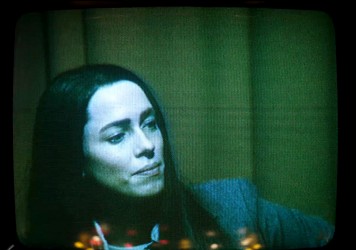A bold directorial debut, but Antonio Campos still has a lot to learn.
With a visceral minimalist style, Afterschool is a scream in the face of the American indie scene; a fuck you to the MTV aesthetic that for so long has personified mainstream youth culture. An opening viral mêlée poignantly sets up the film’s yo-yoing emotional instability, while encapsulating the internet’s capacity to nourish human perversions.
Assaulted by graphic scenes of sexual depravity you can’t escape a personal recognition of such morbid observation. Not literally, perhaps. But the idea that we have allowed the dotcom phenomenon to stimulate such social ills is clear from the outset.
This is not so much a film for the YouTube generation as it is about it. Channelling his own fetishisms through the film’s central character, Robert (Miller) – a prep school sophomore with a penchant for digital debauchery – director Antonio Campos examines the darker side of our innate fascination with human interaction.
During an audio-visual assignment Robert accidentally captures a tragedy that throws the entire school into paranoid disarray. The ensuing social commentary is a stark cautionary tale, compassionate and cold at the same time.
In fitting contrast to the limitless expanse of the internet, Afterschool is intimate and claustrophobic. Here in, however, lie the films triumphs and shortcomings. Through a static lens Campos observes his subject with an unflinching eye, which gives the characters depth and realism, but he doesn’t quite do enough to make you care. The young filmmaker has taken lengthy notes from the Larry Clark and Gus Van Sant schools of adolescent angst, you feel, but he still has a lot to learn from these esteemed auteurs.
At times this is difficult, draining viewing. A predominantly young cast carry the script well, but there is just too little left unsaid when the credits role. There’s a discomfort here too; an awareness that the director’s voyeuristic gaze transcends the normally secure space of the frame, eerily switching focus onto the audience. With a lingering and often awkward style, Afterschool is ambitious but ultimately lacklustre.
Published 20 Aug 2009
Fared well at Cannes a few years back. Think Elephant for the YouTube generation.
Ballsy in places, but its artsy inclinations sacrifice any meaningful engagement.
Plenty to say, but Afterschool feels lost for words.

Lynne Ramsay’s first film for nine years is a dizzying visual trip anchored by Tilda Swinton’s superlative central performance.

Rebecca Hall brings her A-game in this tragic, quietly stunning portrait of female depression.